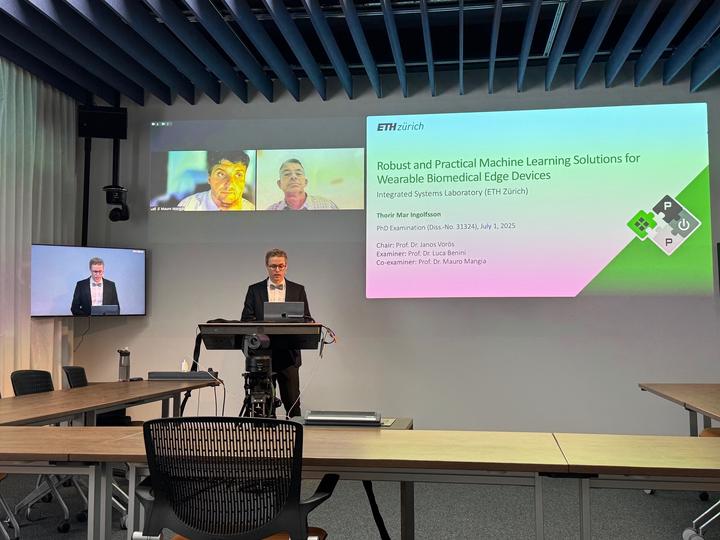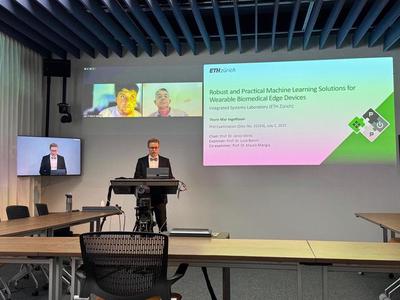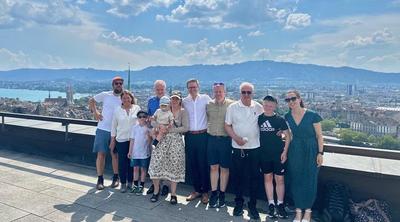PhD Defense – Robust and Practical Machine Learning Solutions for Wearable Biomedical Edge Devices
 Defending my PhD at ETH Zürich
Defending my PhD at ETH Zürich
Abstract
On 1 July 2025 I defended my doctoral thesis at ETH Zürich, culminating five years of research on ultra-efficient machine learning for biosignals. The work spans seizure detection, smart wearables, and foundation models for EEG/ECG/PPG, resulting in 24 publications and countless collaborations across IIS, PULP Platform, EPFL/CHUV, and an amazing cohort of students. This defense talk wrapped the journey and opened the door to the next chapter.
Looking back on five years of research
- Thesis title: Robust and Practical Machine Learning Solutions for Wearable Biomedical Edge Devices.
- Supervisor: Prof. Luca Benini (Integrated Systems Laboratory, ETH Zürich).
- Scope: 24 journal and conference publications spanning wearable seizure detection, smart sensor systems, adaptable brain–computer interfaces, and biosignal foundation models (LUNA, FEMBA, CEReBrO).
- Collaborators: IIS & PULP Platform colleagues, PEDESITE consortium partners at EPFL/CHUV, and a stellar line-up of students including Anna Tegon, Berkay Döner, Mark Vero, Upasana Chakraborty, Nicolas Lehmann, Federica Palmisano, Luca Benfenati, and more.
Photo album


Slides & resources
A note of gratitude
“This marks the end of an incredible journey that began in 2020… I am forever grateful to my supervisors, collaborators, and the students who contributed to this work. Now it’s time for a short break—and then the next real-world challenge!”
Thank you to everyone who shared the ride, especially the Benini group, the PEDESITE partners, and my family Svana Ingolfsdottir and Ramona Dötsch who cheered from the front row.